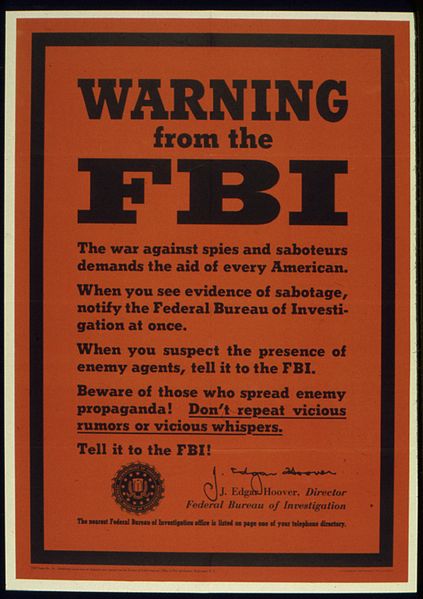A fifth column is any group of people who undermine a larger group or nation from within, usually in favor of an enemy group or another nation. According to Harris Mylonas and Scott Radnitz, "fifth columns" are "domestic actors who work to undermine the national interest, in cooperation with external rivals of the state". The activities of a fifth column can be overt or clandestine. Forces gathered in secret can mobilize openly to assist an external attack. This term is also extended to organized actions by military personnel. Clandestine fifth column activities can involve acts of sabotage, disinformation, espionage, and/or terrorism executed within defense lines by secret sympathizers with an external force.
World War II poster from the United States denouncing fifth columnists
Australian Prime Minister Menzies proposed a federal referendum on 22 September 1951 asking voters to give the Commonwealth Government the power to make laws regarding communists and communism.
Sabotage is a deliberate action aimed at weakening a polity, government, effort, or organization through subversion, obstruction, demoralization, destabilization, division, disruption, or destruction. One who engages in sabotage is a saboteur. Saboteurs typically try to conceal their identities because of the consequences of their actions and to avoid invoking legal and organizational requirements for addressing sabotage.
United States World War II-era poster warning against sabotage
Unauthorized stencil urging sabotage and picketing
World War II poster from the United States
Japanese experts inspect the scene of the "railway sabotage" on the South Manchurian Railway in 1931. The "railroad sabotage" was one of the events that led to the Mukden Incident and the Japanese occupation of Manchuria.






